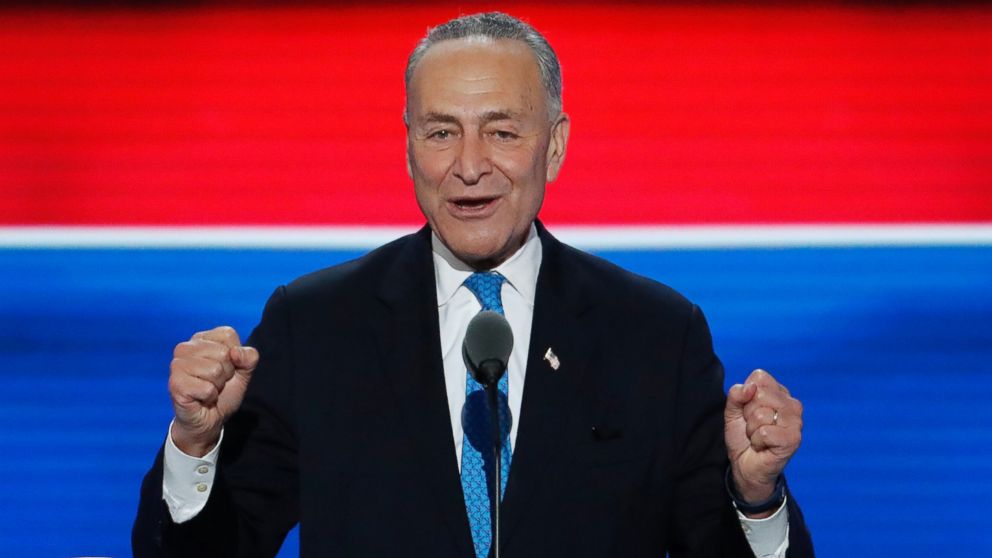Chuck Schumer Says Donald Trump's Victory Is 'Not a Mandate'
Schumer says Democrats led in the popular vote.

— -- Incoming Sen. Minority Leader Chuck Schumer says that President-elect Donald Trump's victory is "not a mandate," vowing to oppose the policy agenda of the Republican-controlled White House and Congress where he and his fellow Democrats disagree.
"What Trump talked about was against the establishment of both parties," the New York Democrat told "This Week" co-anchor Martha Raddatz. "As you know, Democrats got a majority of the popular vote, Hillary [Clinton] did."
Although Trump won the election by clinching more than 270 Electoral College votes, the most recent tallies show Hillary Clinton garnered more than 1.5 million votes than Trump in the nationwide popular vote.
"When he's opposed to our values, we're going to go after him tooth and nail," Schumer said. "For instance, we're not going to let him repeal Dodd-Frank or the rules we’ve put in place to limit Wall Street," he said, referring to the 2010 law passed in the wake of the financial crisis that enacted sweeping changes to the regulation of the financial industry.
"They’re going to regret the day they try to repeal the [Affordable Care Act]," Schumer added. "So when we oppose Trump on values or this presidency takes a dark divisive turn, we're going to do it tooth and nail."
For the first time in a decade, Republicans control the White House and hold a majority in both chambers of Congress, handing them broad power to enact their agenda as long as their party's members stick together.
"Once you lose an election like that, you look it straight in the eye. You don't flinch. You don't blink and you try to examine what you did wrong," he said. "We did not have a strong, bold economic message. We sort of nibbled around the edges -- and not just a message but a platform."
Schumer also pledged to block Trump's pick for the Supreme Court if the pick is too far out of the mainstream. Under current Senate rules, a Supreme Court nominee needs 60 of the 100 votes in order to clear the necessary hurdles for nomination -- meaning Republicans will need at least some Democratic support.
"For the Supreme Court, you need a mainstream nominee," he said. "I hope that President Trump, when he becomes president, will nominate someone who might garner bipartisan support, who might be in that mainstream. If the opponent is way out of the mainstream, I think we’ll oppose that person tooth and nail."



